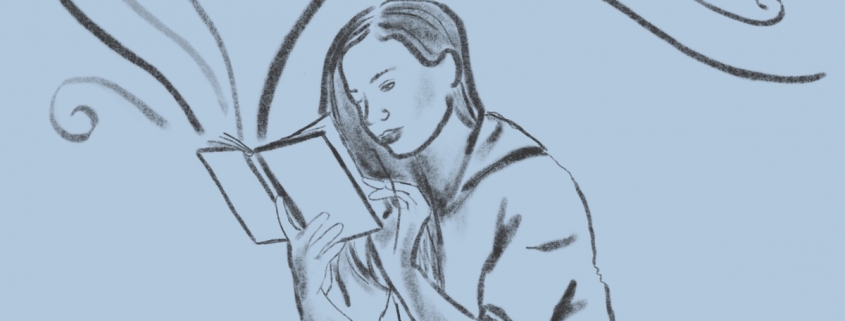Fiction but Fact: Fiction teaches us life is too short to sit around and do nothing

For a “Harry Potter” fanatic like myself, I often wish that Hogwarts actually existed — that I was there right now cracking jokes with the Weasley family and learning spells in Charms class; that I was buying my first wand from Ollivanders, figuring out what exactly fits my personality; that I was partaking in the Triwizard Tournament, showcasing my magical prowess and ability to cope with danger.
But then I remember the pain and heartbreak I went through when Dobby was knifed and passed away in front of Harry, after Fred Weasley died during the explosion and as Snape murdered Albus Dumbledore with his last words being “Severus … please.” My 12-year-old heart broke as I read through the death scenes of my favorite characters.
So to those who say fiction is nothing like real life, I disagree.
Death is a subject shared universally between realms, linking fiction with reality. While the concept may be difficult to comprehend in its full nature, fiction continues to expose us to such heavy topics. It’s almost as if it prepares us for the inevitable in our own lives.
The literary world is anything but make-believe. While the genre itself describes imaginary events and people, fiction feels honest and alive. Cognitive psychologist and researcher Keith Oatley proposed that reading produces a simulation of reality for readers similar to the way simulations run on computers. With its extreme detail, vivid imagery and rich descriptions of characters, fiction invites readers to enter the lives of other people and understand their thoughts.
Researchers such as Oatley have empirically shown us the magnanimous power of fiction; fiction teaches us to empathize, shapes us to be more inclusive, trains us to think more creatively and, most importantly, shows us how to navigate the real world.
Reading fiction welcomes us to social relationships and environments that mirror reality. In my column, I’ll work to bridge the path between fictitious prose and today’s society, highlighting the applicable life lessons fiction communicates to us.
Let me begin with the first life lesson fiction taught me at the age of 12 as I dove into the wizarding world of “Harry Potter”: Life is too short to sit around and do nothing.
Through the seven-volume series, I became friends with every character, both new and familiar faces appeared as the chapters unfolded. I looked forward to Fred and George’s latest pranks and to receiving wisdom from the ever-so-wise Dumbledore. Some inspired me, others intrigued me and yet a few enraged me. And naturally, their fatal departures had profound impacts on me. From being in utter disbelief when Sirius Black disappeared behind the veil, to feeling devastated when Remus Lupin died just after he found love and had a child, I quickly learned that life changes even if you aren’t ready for it.
Time is ever-fleeting and it is up to you to decide how you want to spend it. This notion is not solely tied to fiction, but extends to every element of reality. Somebody you love and know so fondly could easily vanish from existence. This life lesson has never been more evident to me as I grapple with the passing of Kobe Bryant — a hero not only to me, but arguably to the entirety of Los Angeles (maybe even the country). Though I didn’t know him personally — knowing what I knew from reading about him, watching him and listening to him — his passing broke me physically and mentally, similar to the way I broke when my Hogwarts comrades faced the same fate.
Yes, I can differentiate between what is real and what is fake. And no, I am in no way comparing Kobe to literary characters. Instead, I point to the same feelings of sadness, emptiness and tragedy that encompasses their passing. In both scenarios, I am forced to cope with the principle of how short life can truly be.
What Kobe and the characters from “Harry Potter” share is that they all were actively working toward achieving ever-changing goals. They were not sitting idly, waiting for something to happen. And no longer am I.
So to those — myself included — guilty of waiting until tomorrow to do things or pushing work aside because you think, “I’ll have time next week,” I urge you all to remember how fragile life is. Unfortunately, we don’t know how much time we have left and we can’t be sure we’ll have next week to do what we planned to do.
Aisha Patel is a freshman writing about fiction in parallel to current events. Her column, “Fiction but Fact,” runs every other Wednesday.

